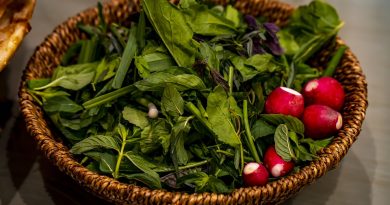Overcoming the Top Challenges of Losing Weight on a Vegan Diet
Overcoming the Top Challenges of Losing Weight on a Vegan Diet
Following a vegan diet can have numerous health benefits, including weight loss. However, like any diet, there are challenges that can make it difficult to achieve weight loss goals. In this article, we will discuss the top challenges of losing weight on a vegan diet and provide tips on how to overcome them.
1. Lack of Protein
One of the biggest challenges of following a vegan diet for weight loss is getting enough protein. Protein is essential for building and repairing tissues, including muscle mass, which can help boost metabolism and aid in weight loss. However, many plant-based sources of protein may not be as high in protein as animal sources.
To overcome this challenge, focus on incorporating a variety of protein-rich plant foods into your diet, such as beans, lentils, tofu, tempeh, quinoa, and edamame. You can also supplement with vegan protein powders or bars to ensure you are meeting your protein needs.
2. High Carb Intake
Another challenge of losing weight on a vegan diet is the potential for consuming too many carbohydrates. While carbohydrates are an important source of energy, consuming too many can lead to weight gain. Many vegan foods, such as grains, fruits, and starchy vegetables, are high in carbohydrates, which can make it easy to overconsume.
To combat this challenge, focus on incorporating more non-starchy vegetables, such as leafy greens, broccoli, and peppers, into your meals. These foods are low in calories and carbohydrates, making them a great option for weight loss. Additionally, be mindful of portion sizes and balance your meals with protein and healthy fats to help control blood sugar levels and reduce cravings.
3. Lack of Convenience
One common challenge of following a vegan diet is the lack of convenience when it comes to finding vegan-friendly options on-the-go or dining out. This can make it difficult to stick to your weight loss goals, especially when faced with limited choices or tempting non-vegan options.
To overcome this challenge, plan ahead by preparing meals and snacks in advance that are easy to grab and go. Stock your kitchen with vegan pantry staples, such as canned beans, whole grains, nuts, and seeds, to make quick and easy meals. When dining out, research vegan-friendly restaurants in advance or ask for modifications to menu items to make them vegan-friendly.
4. Emotional Eating
Emotional eating is another challenge that can hinder weight loss on a vegan diet. Turning to food for comfort or to cope with stress, boredom, or other emotions can lead to overeating and weight gain. This can be especially challenging for vegans, as many vegan comfort foods, such as vegan desserts and processed foods, may still be high in calories and unhealthy fats.
To overcome emotional eating, practice mindful eating by paying attention to your hunger cues and emotions when eating. Find alternative ways to cope with emotions, such as exercise, meditation, or talking to a friend or therapist. Additionally, try to keep healthy snacks on hand to reach for when cravings strike, such as fruit, veggies with hummus, or air-popped popcorn.
5. Nutrient Deficiencies
Following a vegan diet can put you at risk for certain nutrient deficiencies, such as vitamin B12, iron, calcium, and omega-3 fatty acids, which are important for overall health and weight loss. Without proper supplementation or careful planning, you may not be getting enough of these nutrients in your diet, which can negatively impact your weight loss goals.
To overcome this challenge, consider taking vegan-friendly supplements to ensure you are meeting your nutrient needs, such as a B12 or iron supplement. Focus on incorporating nutrient-dense foods into your diet, such as leafy greens, nuts, seeds, and fortified plant-based milks. Additionally, consider working with a registered dietitian who specializes in vegan nutrition to help guide your food choices and ensure you are meeting your nutrient needs.
In conclusion, while there are challenges to losing weight on a vegan diet, with proper planning and mindful eating, it is possible to achieve your weight loss goals. By addressing common challenges, such as lack of protein, high carb intake, lack of convenience, emotional eating, and nutrient deficiencies, you can overcome barriers to weight loss and achieve success on a vegan diet. Remember to focus on whole, nutrient-dense foods, balance your meals with protein and healthy fats, and seek support from a dietitian or healthcare professional as needed. With dedication and persistence, you can achieve weight loss on a vegan diet and improve your overall health and well-being.






